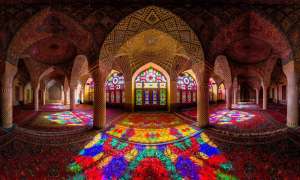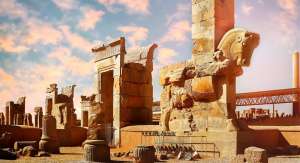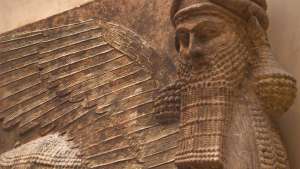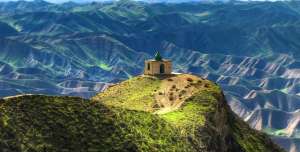The Republic of Iraq forms part of the Western Asia group of countries. Iraq borders five other countries, including Turkey, Kuwait, Saudi Arabia, Jordan, and Syria. With a total land area of 437,072 square kilometers, Iraq is the world’s 58th largest country. The country has several important cities which have defined both the history and the existence of the country. Some of these cities, such as Karbala, Najaf, and Baghdad, are frequented by Muslims from all over the world because of their status as holy cities. Most of the cities in Iraq are political, administrative, financial, and commercial centers. The biggest cities in Iraq are looked at below.
Travel Trip Time
Iraq Travel Guide
Iraq should be one of the planet's most alluring travel destinations. It boasts fascinating ancient sites of Mesopotamia, Sumer and Assyria, including Babylon and the great Ziggurat of Ur; the 'Venice of the East', Basra; diverse ethnic groups including Kurds and Marsh Arabs; and of course the city that forms the focus of tales from the 1,001 Nights: Baghdad.
History of Syria
Syria is home to one of the oldest civilizations in the world, with a rich artistic and cultural heritage. From its ancient roots to its recent political instability and the Syrian Civil War, the country has a complex and, at times, tumultuous history.
SYRIA before and after war
The war in Syria has claimed more than 130,000 lives and, as these images reveal, it is also laying waste to its historic buildings and Unesco-listed sites. As the Arab Spring brought protesters into streets across the Middle East and North Africa in early 2011, some of Syria's 22 million people decided to join in. Pro-democracy demonstrations began in the southwestern city of Deraa.
It wasn't crazy at the time to imagine that President Bashar al-Assad, in power since 2000, might step beyond the brutal legacy of his father, the dictator Hafez al-Assad, to open a period of reform that created new opportunities, particularly for his country's youth.
Is It Safe To Travel To Iraq?
Iraq has a long and storied history and was home to some of the planet’s earliest civilisations. However, the country has been in chaos since the United States-led invasion in 2003 and the subsequent fall of Saddam Hussein. Post invasion governments have struggled to maintain peace, and the country has seen intense sectarian violence and a resultant weak economy, in spite of the country’s huge crude oil reserves. In 2014 the Islamic State group took control of large parts of the country, fuelling further violence, though it was eventually driven out by a government offensive in 2017. Even so, there continues to be a risk of terrorism, kidnapping and civil unrest.
10 Years: Why has the Syrian civil war lasted so long?
It has been 10 years since the war in Syria began. Hundreds of thousands of people have died over the past decade and tens of thousands have disappeared, their fates unknown. Russia and Iran, the US and its allies, and Turkey each back different competing groups - all of which have fought long, bitter battles to acquire the territory they hold. The war that has engulfed Syria shows no sign of ending for good.
Although there is a shaky ceasefire in place, the country remains what a UN monitor calls a "tinderbox" - with five foreign militaries poised and ready to engage in active operations.
This is the story of one of the most violent and bloody conflicts of the 21st century.
The Most Beautiful Places in Yemen
Yemen is one of the most important countries of middle east in Arabian peninsula that has interesting cultural history. It was a very prosperous trading place reference of which is found in Bible as Sheba. Later it had Jewish and Christianity influences. Islamic influence came much later on but spread very rapidly during 7th century AD. Yemen has interesting elements of ancient world. Besides it has some unique natural wonders too. Yemen was a very popular place for tourism until 2011 when the country faced political turmoil. Now things are improving. Tourism is on a slow rise again in that part of the world. Sanaa, the most important city of the country has some excellent hotels for travelers to stay.












